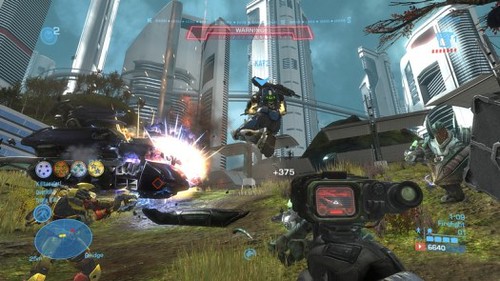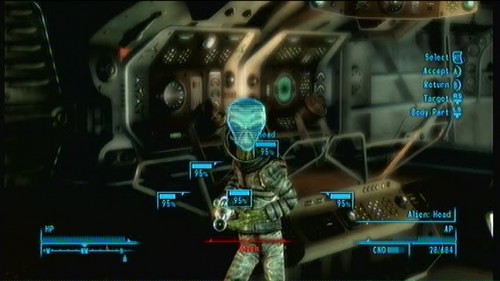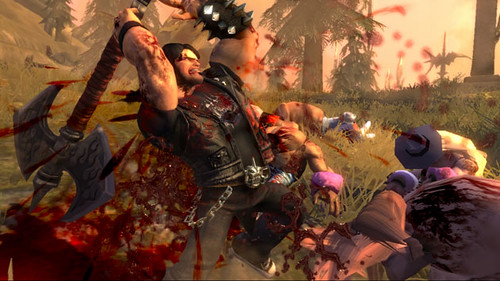Go to any video game message board and you are bound to come across this phrase – “Games today are stupid! They were so much better when I was younger, back when they had more challenge/depth/length/story/nostalgia/mascots/two-dimensions!” It’s a common chorus, though those who say it often neglect how some of the changes to gaming have vastly improved the pastime.
Since this past week marked Thanksgiving as well as the fifth anniversary of the Xbox 360, I though I would take a moment to share my appreciation for a few of the things this console generation that have made our leisure time a bit easier, a bit more social, and simply a bit more cool.
Online Gaming
The Complaint: “Who would ever want to play with a bunch of racist a-holes?”
Sure, sure, the anonymity of online multiplayer has resulted in a very unique blend of unsportsmanlike behavior, but the fact that I can jump into a game of Halo or Civilization: Revolution with my friends in other cities or states makes up for all the juvenile chatter that fills the Internet. The right, social company can turn a mediocre game into a great one, even when you’re getting destroyed by a kid whose Black Ops emblem is a unicorn humping a swastika.
This has especially been a boon for cooperative games, which were once an endangered species right up there with adventure games and side-scrollers. Now there’s barely a first-person shooter that’s released without co-op, and we’re even to the point of games like Left 4 Dead, which is all about playing with flesh and blood players, and Fable III, where your character can not only enter your friend’s game world, but get hitched to him as well. If that’s not progress to you, you’re probably living in Kansas.
Downloadable Content
The Complaint: “Those greedy developers are chopping up pieces of their game and selling them to us when they should already be in there!”
Yes, DLC is easy for publishers to abuse – 2K took some heat earlier this year when it was revealed that their first DLC for Bioshock 2 was already located on the disc and players were basically paying for an unlock code. And yes, this will happen again, at least for as long as Activision can get away with charging $15 for three multiplayer maps. But for every story like these I think of things like Red Dead Redemption’s Undead Nightmare pack, Fallout 3’s mini-expansions, or Mass Effect 2’s suite of additional content, about a third of which was free. These are all examples of games that already shipped with plenty of content and for $5 to $10 gave fans an excuse to drop back into their world for a few more hours. 
Bethesda's infamous “Horse Armor” pack was about as bad a start that DLC could have short of charging you to punch yourself in the face. It is something of a wild card for the industry going forward, but I’ve had enough good experiences with DLC that it’s one of my favorite new features of the gaming industry. Smart developers have used it to introduce new mechanics to their games and make new content that addresses the initial criticisms of their title. And if you don’t like it, just don’t buy it.
Shorter Games
The Complaint: “I paid $60 for this game and beat it in two days!? What a rip-off!”
I know a lot of people get upset over this, and for legitimate reasons. Games are more expensive now than they’ve been in the past and we are always looking to make our dollar go further. But you know what? I’m older and busier now and don’t always have the time to comb through a forty-plus hour adventure. Fallout: New Vegas sits waiting to be beaten, but this time last year I spent about four days playing and enjoying all of Brutal
Legend.
To me, shorter titles translate as one less unfinished game to add to my pile of shame. There was a time when I wanted to maximize my economic investment in games; now, I care more about the experience I have with a given title and the majority of games today deliver a hell of a ride, even if they never reach the ten hour mark. Again, I understand how length is an important factor for a lot of people, but personally I’m much more conscious now of the quality of my game time, as opposed to the quantity of it.
Games are continually changing based on a variety of technological and social factors. They are always going to be different, but that does not mean they have to be bad. We can still look on the bright side of our hobby while remaining savvy consumers.